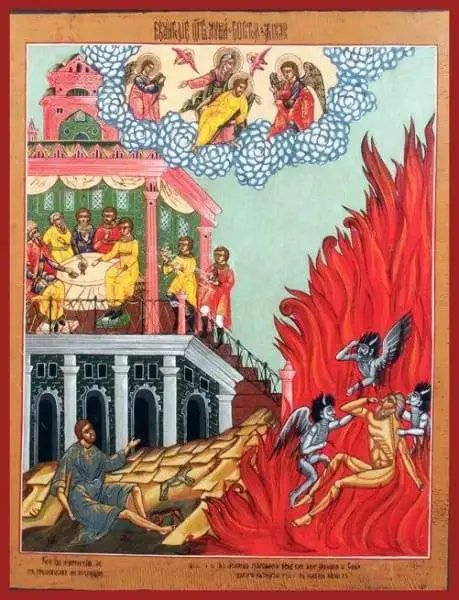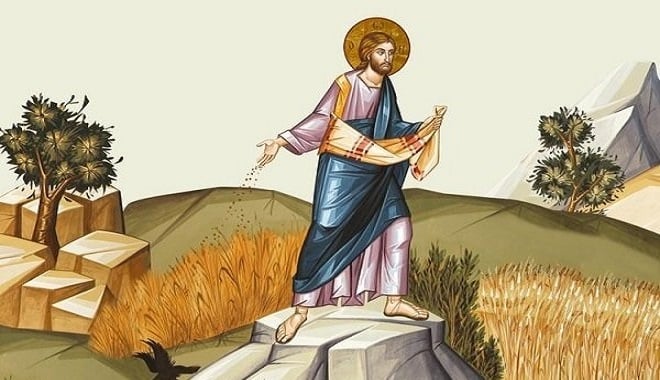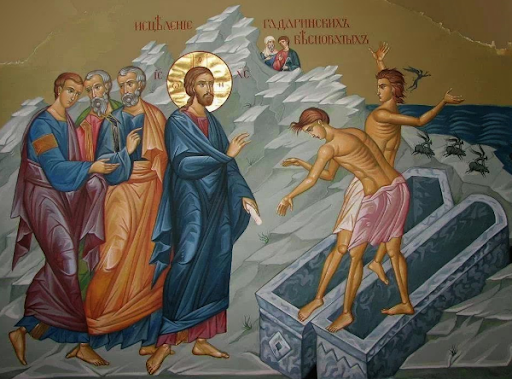
Homily on II Corinthians 11:31-12:9 and Luke 16:19-31
In the name of the Father, and of the Son, and of the Holy Spirit. Amen.
Today, dear brothers and sisters, we also are blessed with two powerful passages from Scripture: one from St Paul’s second letter to the Corinthians, where he writes of his struggles, his weaknesses, and God’s response to them. We also listened to the parable of the rich man and Lazarus in the Gospel of Luke (Luke 16:19–31), which is intended to teach us about wealth, poverty, and the eternal consequences of our earthly decisions. Together, these readings extend an invitation that we reflect more profoundly on the life of a Christian and show us the power and love of God even in our weaknesses and trials. In his letter, St Paul speaks of his “thorn in the flesh, ” a weakness that greatly troubled him. Three times he pleaded with God to take it away, but God answered, “My grace is sufficient for you, for my power is made perfect in weakness.” Paul’s response is striking.
Instead of despairing, he boasts of his weakness, saying, “I will boast all the more gladly of my weaknesses, so that the power of Christ may rest upon me.” Thus, he wants to teach us that God’s Grace does work, not despite weaknesses, but through them. When we recognize our helplessness and our trust in God, then our heart is open to receive His grace and strength. In today’s Gospel, another form of weakness is presented: poverty and suffering through Lazarus, the poor man with sores, lying at the door of a rich man. Lazarus lived a wretched life. Really speaking, he was never taken into consideration by the rich man, who spent an ostentatious life, oblivious of the suffering at his very doorstep.
When both died, quite literally their fates were reversed: Lazarus was taken by the angels to Abraham’s side, whereas the rich man went to a place of torment. The rich man’s sin was not his wealth but rather his hardness of heart, his blindness to the suffering of others. He did not see Lazarus as his fellow human being and neither did he recognise God’s call – go and show mercy and compassion. Both passages speak to the condition of the human heart and the choices we make when faced with weakness and suffering. We can see how in St Paul his weakness was a path to humility and reliance upon God. The rich man, however-he had lived a life of comfort and self-focus, which had hardened his heart and stopped him showing love and compassion on his neighbour. In both, God uses weakness to draw us closer to Himself. The weakness of St Paul threw him into a greater dependence on God, while the suffering of Lazarus prepared him for eternal comfort. But in the case of the rich man, the failure to respond with love and humility led to his spiritual poverty and to his separation from God into eternity.
What does this mean to us brethren? This reminds us that weakness and suffering are not just evils to be eliminated. Like St. Paul, we may frequently pray to be delivered from our crosses, and at times God does answer us by lifting our burdens. But other times, God allows these crosses to stay with us, because through them He teaches us humilities, dependence, and love.
He wants us, as St. Paul did, to learn that His grace is sufficient, and that His power is perfected in our weakness.
It goes further as an appeal to respond to the “Lazaruses” at our gates, people around us who are suffering or in distress. God puts people in our lives, one way or another, for opportunities to reveal His love and compassion. When we ignore them, we harden our hearts, just as the heart of that rich man was hardened. The rich man did not end up in torment because of his wealth but because he failed to love, failed to open his heart to the suffering person right in front of him. Our Orthodox faith challenges us to transcend the superficial and offers the great challenge of beholding Christ in every person, but especially in the suffering. Christ teaches us, “Whatever you did for one of the least of these, you did for Me” (Matthew 25:40). By turning away from others in need of our help, we are turning away from Christ Himself. Conversely, embracing those who suffer opens up to His grace. Let us take heed of these words and take a hard look at our lives. Are we open to God’s grace in our weaknesses, just like St Paul? Do we understand that sometimes our struggles are a path to humility and a means by which the power of God can show itself in us?
And do we look upon those around us in need of our love and compassion, or have we become like the rich man, lost in our own comfort and foolishly insensitive to the sufferings of others?
Let us pray for God’s mercy, for the grace of humility, and for eyes which would see Christ in each person, most especially in the needy. May we, in our weakness, lean on the Lord and respond to others with love, as He has loved us. May we cut open our hardened hearts by humility and compassion and open them to the power of Christ Who perfects us through His grace and calls us to share His love with all. In the name of the Father and of the Son, and of the Holy Ghost. Amen.
Copyright © 2025 The Rev. Adrian Augustus. The Russian Orthodox Church of the Archangel Michael, Blacktown, NSW


